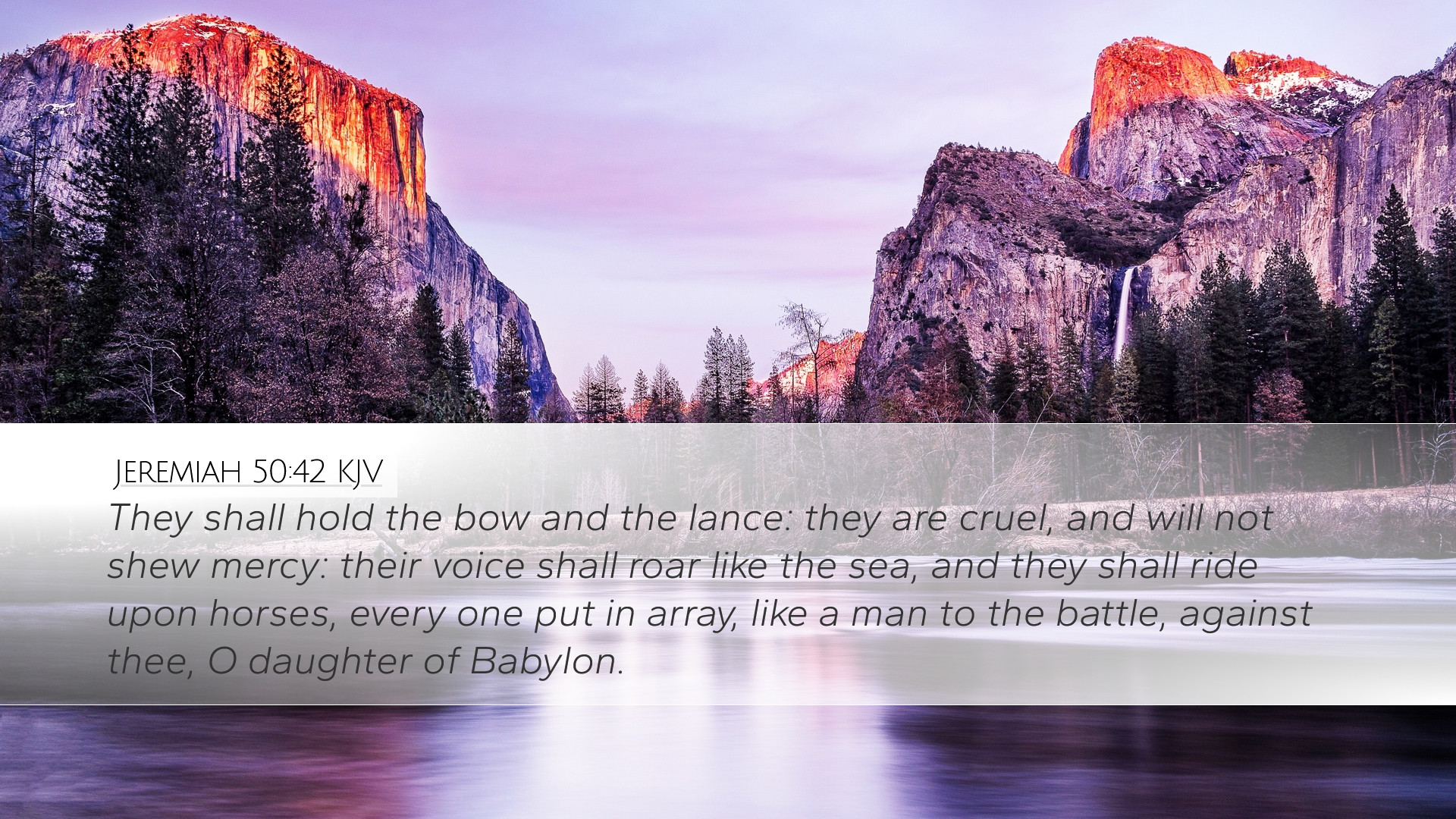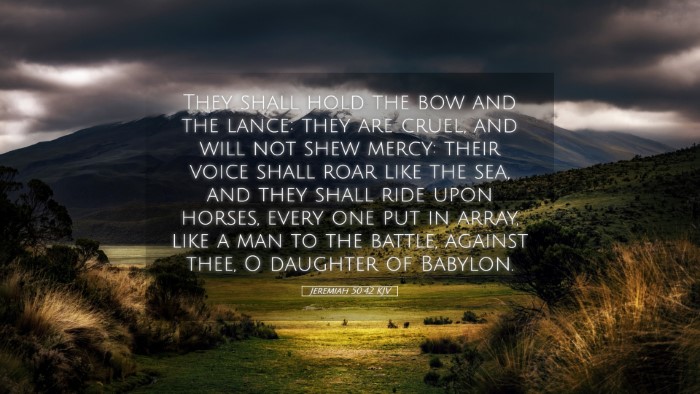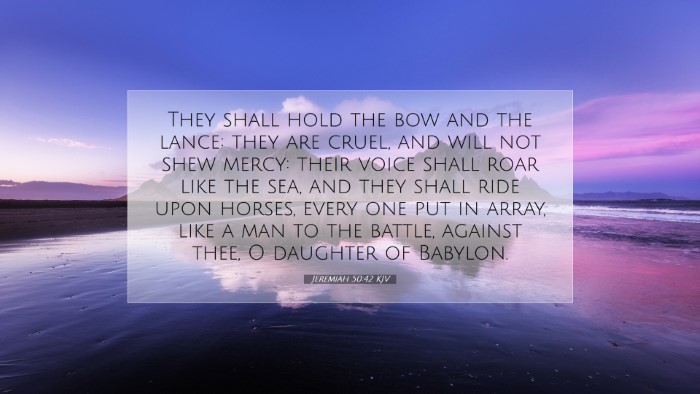Commentary on Jeremiah 50:42
Verse Context: Jeremiah 50:42 states, "They shall hold the bow and the lance; they are cruel and will not show mercy: their voice shall roar like the sea, and they shall ride upon horses, every one put in array, like a man for the battle, against thee, O daughter of Babylon." This verse is part of a larger prophetic declaration concerning the fall of Babylon and the judgment that would come upon it for its sins against God and His people.
Exegesis and Themes
This verse vividly depicts the military might of the forces God will send against Babylon. The imagery of bows, lances, and roaring sea-like voices creates a powerful portrayal of an imminent and fierce battle.
Military Imagery and Symbolism
Matthew Henry's Commentary: Henry highlights the importance of the military metaphor in understanding God’s judgment. He emphasizes that the instruments of war mentioned symbolize the total commitment of the forces against Babylon. They are equipped for total conquest, showing that God is sending a formidable army to fulfill His prophetic word.
Albert Barnes' Notes: Barnes concurs on the military symbolism, showing that the reference to being "put in array, like a man for battle" indicates a disciplined and organized force, ready to execute divine vengeance. He notes that this is not just a random act of violence, but rather a calculated orchestration directed by God Himself.
Cruelty and Lack of Mercy
Adam Clarke's Commentary: Clarke draws attention to the traits of cruelty and lack of mercy attributed to this invading force. He points out that God's judgment often comes through agents that are fierce and merciless, serving as a reminder of the seriousness of sin. Clarke sees this as a warning that the same principles apply today— that God's righteous judgment may sometimes come through harsh circumstances.
Theological Implications
This verse provides critical insights into the nature of God's judgment and the company of those He uses to accomplish it. It raises essential questions about divine justice, agency, and the character of nations.
Divine Sovereignty
The military might assembled against Babylon illustrates God's sovereignty over nations. Matthew Henry emphasizes that even those who carry out judgments are ultimately under divine control. This assurance is essential for believers who witness injustice and brutality. They can trust that God uses even the cruelest of forces to fulfill His purposes.
Judgment and Mercy
Despite the harshness of the judgment pronounced, the character of God remains consistent, reinforcing His holy disdain for sin and injustice. Albert Barnes reminds scholars and theologians that the judgments God inflicts can also act as a form of grace, drawing sinners back to repentance.
Practical Applications
For pastors and theologians, the insights from this verse can be useful in addressing contemporary issues surrounding justice, judgment, and mercy:
- Understanding God’s Justice: There is a necessity for churches to preach on God’s justice and the reality of judgment against sin. Jeremiah 50:42 serves to remind believers that God is not only a God of love but also of righteousness.
- Encouragement Amidst Oppression: This passage offers hope to those suffering oppression, reminding them of prophetic fulfillment and the ultimate victory that God orchestrates against evil.
- Call for Repentance: The violence depicted in the verse calls for a period of introspection and repentance within the church to align with God’s will and avoid falling under judgment.
Conclusion
Jeremiah 50:42 is a profound declaration of God's intention to bring down Babylon, a symbol of higher sinful powers. By juxtaposing this with insights from esteemed scholars like Henry, Barnes, and Clarke, we find it is not merely a historical account but also a vivid reminder of God's sovereignty, justice, and the reality of divine judgment.


